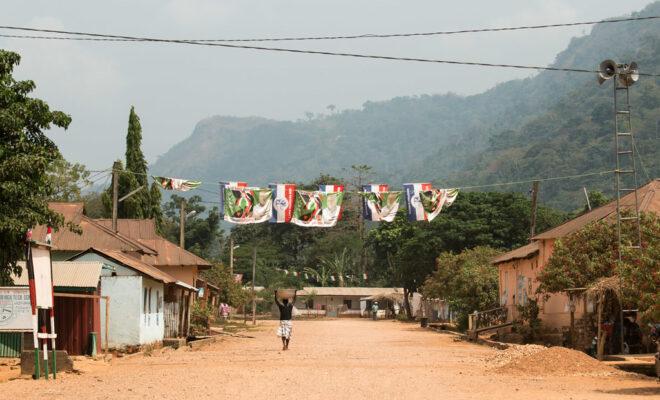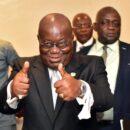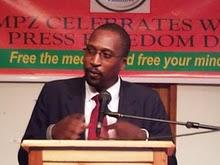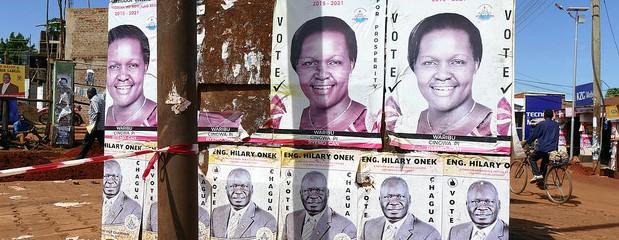Ghana: Political vigilantes are a concern, but there’s a bigger one

Last year, armed men stormed an opposition politician’s home on the day of a by-election. Is this is a taste of things to come ahead of national elections?

A woman walks under election banner during the 2016 Ghana Elections in the Volta region. Credit: Carsten ten Brink.
On 31 January 2019, just hours after polls opened in a parliamentary by-election in Accra, masked men wearing national security uniforms stormed the residence of the main opposition candidate. They opened fire on party activists, wounding 18 people. Videos of the scene – replete with armed men, bullet holes, bloodstained walls and wounded civilians – soon went viral. The main opposition National Democratic Congress (NDC) accused the government led by the New Patriotic Party (NPP) of orchestrating the attack.
Later that day, the police assured the public that calm had been restored and encouraged residents to continue their day without fear. But this reassurance rang empty for many, both in Ayawaso West constituency and across Ghana. A vote in the nation’s capital had just turned bloody, a year before the 2020 general elections that are expected to be highly competitive. Ghana’s national elections have typically been neck and neck, leading to three transfers of power. The upcoming vote is set to be similarly closely fought, with a recent Afrobarometer survey suggesting neither main party will secure a first-round victory.
Among other things, the incident in Ayawaso West reinvigorated a timely debate in Ghana about political vigilantes. Ever since independence, major parties and individual politicians have been known to mobilise groups of largely unemployed young men around elections. Sometimes their function has been to serve as polling agents or to help with voter registration, more akin to party “foot soldiers” or activists. But often, political vigilantes in Ghana have used violence too in service of their patrons, starting riots, harassing civilians and intimidating opponents.
Given the country’s history of close political contests, it is not surprising that politicians have sometimes turned to illegitimate tactics to secure power. The Ayawaso West shootings suggest that the problem may have already reached worrying levels. At the time of the by-election violence, experts estimated that more than 20 such groups were active across Ghana. This included outfits that have been frequently accused of aggression such as the Invisible Forces and Delta Force, who mobilise for the NPP, and the Hawks and Azorka Boys, who operate in the name of the NDC.
A greater threat?
The January 2019 incident didn’t only highlight the threat of political vigilantes in Ghana’s political landscape. After all, the masked men who stormed the NDC offices arrived in Police SWAT-branded vehicles and turned out to be national security operatives.
Why they were there and the exact turn of events that prompted their actions has been widely debated. The president established a commission of inquiry to investigate the matter shortly after the incident. This body interviewed several concerned parties and witnesses including National Security Minister Albert Kan-Dapaah. Speaking to the commission, he claimed that the force was deployed due to intelligence that there were weapons at the property.
Kan-Dapaah also argued that the SWAT team could not be accused of intimidation or disrupting the polls as they were not there for election-related duties. This was met with scepticism given the location of this use of force: an opposition candidate’s house; and its timing: the day of elections.
It remains unconfirmed whether rumours that the SWAT team are all also members of NPP-affiliated vigilante groups are true. Nonetheless, the event has proven far from reassuring to people in Ghana, unsure of whether they can trust the formal security institutions that are ultimately responsible for ensuring voters can exercise their democratic rights safely and securely in 2020.
Peaceful elections
In contexts where formal institutions and security providers are not fully trusted, there is potential for informal actors to provide alternatives. While, in theory, party foot soldiers may have the potential to offer this solution and ensure security, the reality is that political vigilantes in Ghana offer more risks of violent escalation than stability.
The prospect of reducing the role of vigilantes or eradicating them, however, looks highly unlikely. The recently adopted 2019 Vigilantism and Related Offences Act bans vigilantism on paper, but the government’s willingness and capacity to enforce this is another matter.
The fact that masked and armed state forces appear to be engaging in election-related contests now too, without the police force’s knowledge in some cases, is deeply worrying. Unless such questionable usage of formal security actors is dealt with, Ghana’s reputation for holding smooth and peaceful elections might be under threat in 2020.
For more, read Mariam Bjarnesen’s academic article The Foot Soldiers of Accra in African Affairs.






